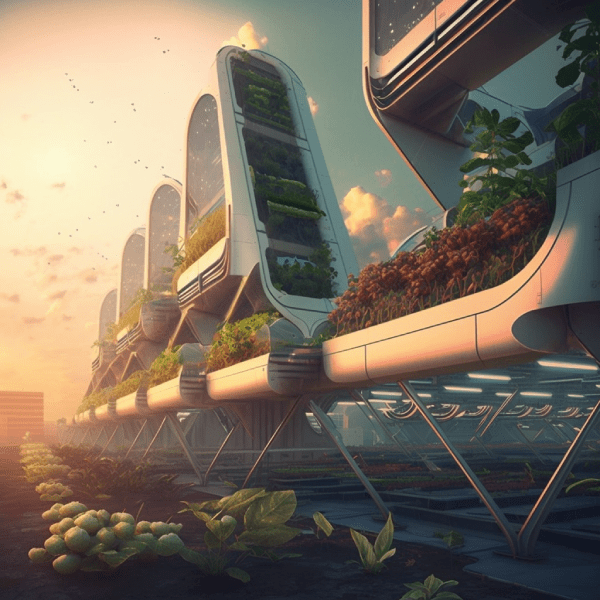In today’s world, sustainability has become an increasingly important concern. The circular economy and sharing economy are two innovative approaches that offer new ways to reduce waste, conserve resources, and promote more sustainable economic models. In this blog post, we will explore the concepts of the circular economy and sharing economy, their benefits, and their potential to transform our society and economy.
Circular economy: a new model for resource management
The circular economy is an economic model based on the principles of designing out waste and pollution, keeping products and materials in use, and regenerating natural systems. This approach aims to create a closed-loop system in which resources are reused, repaired, and recycled, minimizing the need for new resources and reducing waste. The circular economy model is being adopted by businesses, governments, and communities around the world, leading to new innovations in product design, supply chain management, and waste reduction.
Benefits of circular economy
The circular economy offers numerous benefits, including:
- Reduced waste and pollution: By reusing and recycling resources, the circular economy reduces the amount of waste that ends up in landfills or pollutes the environment.
- Increased resource efficiency: The circular economy promotes the efficient use of resources, leading to less resource depletion and a more sustainable future.
- Economic benefits: The circular economy can create new business opportunities, reduce costs, and improve the bottom line for companies that adopt circular practices.
- Social benefits: The circular economy can create jobs, improve community resilience, and promote social equity.
Sharing economy: a new model for access
The sharing economy is an economic model based on the sharing of underutilized assets or skills, often facilitated through online platforms. The sharing economy allows individuals to access goods and services without owning them outright, promoting more efficient use of resources and reducing waste. The sharing economy has led to the emergence of new business models in transportation, lodging, finance, and many other industries.
Benefits of sharing economy
The sharing economy offers numerous benefits, including:
- Increased resource efficiency: The sharing economy promotes the efficient use of underutilized assets, reducing waste and conserving resources.
- Economic benefits: The sharing economy can provide affordable alternatives to traditional products and services, create new business opportunities, and generate income for individuals and communities.
- Social benefits: The sharing economy can foster social connections, promote community building, and provide access to goods and services for marginalized populations.
Building a sustainable future together
The circular economy and sharing economy offer promising solutions to some of the most pressing challenges facing our society and economy. By promoting the efficient use of resources, reducing waste, and fostering social connections, these models can create a more sustainable, equitable, and resilient future for all. However, their success will depend on collaboration between businesses, governments, and communities to overcome barriers to adoption and scale these models effectively.
To achieve a truly sustainable future, we must embrace innovative approaches like the circular economy and sharing economy, and work together to build a more sustainable, equitable, and prosperous world for all. By doing so, we can create a future in which people and the planet thrive together.
In conclusion, the circular economy and sharing economy are two innovative economic models that offer new ways to promote sustainability, efficiency, and social connections. These models can create a more sustainable future by reducing waste, conserving resources, and promoting social equity. By working together, we can build a future in which people and the planet thrive.
Interesting facts
- The circular economy could generate $4.5 trillion in new economic growth by 2030 (Accenture).
- Adidas created 1 million pairs of shoes made from recycled ocean plastic in 2017, reducing waste and promoting sustainable production practices (Adidas).
- The global circular economy market is expected to grow from $96.5 billion in 2020 to $186.3 billion by 2025, at a CAGR of 14.1% (MarketsandMarkets).
- The sharing economy could generate global revenues of $335 billion by 2025, up from $15 billion in 2014 (PwC).
- Airbnb has facilitated more than 500 million guest arrivals since its founding in 2008, providing an alternative to traditional hotel accommodations (Airbnb).
- The car-sharing industry could reduce the number of cars on the road by 1.2 billion by 2050, according to one estimate (BCG).
- The Ellen MacArthur Foundation estimates that transitioning to a circular economy could save $700 billion annually on materials alone by 2030.
- Patagonia’s Worn Wear program, which repairs and resells used clothing, has saved 72 tons of clothing from landfills since 2013 (Patagonia).
- The circular economy could create 100,000 new jobs in the European Union alone by 2030 (European Environmental Bureau).
- A study of Lyft and Uber found that ride-sharing could reduce traffic congestion in major cities by up to 90% (UC Davis).
- Home-sharing can provide extra income for homeowners, with the average Airbnb host earning $7,900 per year in the US (Airbnb).
- Peer-to-peer lending platforms can offer lower interest rates for borrowers and higher returns for investors, with some platforms boasting default rates as low as 1.5% (LendingClub).



